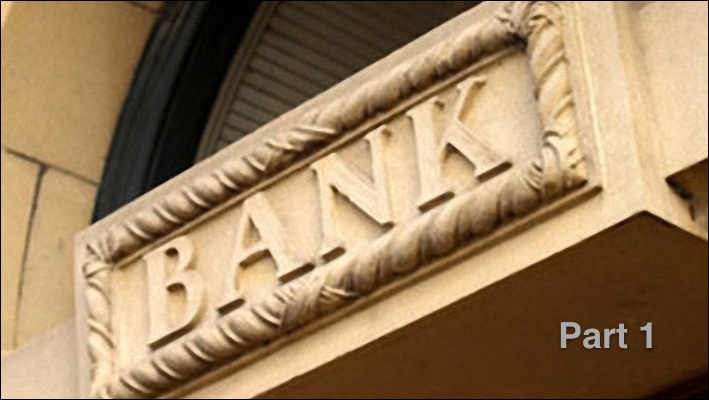
IN PART 1, we gave you some advice if you are deciding whether or not to fix your loan.
Today, we continue where we left of with three guidelines to help you avoid a few more common pitfalls when it comes to fixing a loan. [Read more…]
Insider Tips to Help You Discover How to Succeed with Commercial Property
>
From a very early age, Chris always sought to discover whatever the RULES might be for each situation – so he could quickly figure out how to master them. And from there, he has continued helping clients achieve their own Commercial Property success.
Read More

IN PART 1, we gave you some advice if you are deciding whether or not to fix your loan.
Today, we continue where we left of with three guidelines to help you avoid a few more common pitfalls when it comes to fixing a loan. [Read more…]

INTEREST RATES REMAIN at historically low levels. And the competition for business between banks and non-bank lenders is fierce.
As a result, you can find some very attractive fixed rate options in the market at the moment.
However, if you are considering fixing an existing loan or taking out a new fixed loan, you must understand some fundamental rules that govern these loans.
The following guidelines will help you structure your fixed loans to provide the most benefits for both your residential and commercial investments. [Read more…]

IN MY LAST ARTICLE, you read about the various securities lenders can take over your property, in addition to mortgages.
This article will highlight various options for improving your security position when borrowing as a means of maximising your asset protection. [Read more…]

IN THE LAST article, you read about two different types of security that lenders can take other than the mortgage. They were “Fixed and Floating Charges” and “Personal Guarantees”.
However, there are a few other forms of security that you should be aware of before entering into any agreements. Read on to find out more. [Read more…]

WHEN YOU TAKE out a property secured loan, you understand that a lender will register a mortgage against the property that is being secured.
However, typically, when you read through actual loan agreements, the mortgage is just one part of the security that is taken.
In this article, we will be looking at some of the other types of security that lenders will typically request when applying for a loan. [Read more…]

LIKE MOST COMMERCIAL PROPERTY investors … you are mainly concerned with obtaining the best rates and terms possible, when it comes to funding options.
As a general rule, you will find these with the major and second tier banks — their cheap cost of funds are able to on-lend at often attractive terms. And in the current environment of high competition for business and low interest rates, the bigger lenders are a good place to start. [Read more…]

COMMERCIAL PROPERTY FINANCE rates and fees are much more fluid than those associated with residential loans.
To get the best deal, you should know what the banks look for and consider the other factors that go into pricing for commercial loans. The following ways may assist you in securing better pricing for your commercial loan. [Read more…]

RESIDENTIAL PROPERTY INVESTORS commonly release equity in their homes in order to invest in other property. But can you do the same with your Commercial property?
It is possible for you to utilise the equity in Commercial property … but it is a bit more difficult and complex than with residential property.
Banks are more risk-averse to Commercial property funding than they are to the residential market. And they will want to have some measure of control over the use of funds — before releasing cash to you. [Read more…]

THE OTHER DAY, I was doing some analysis on the loans lodged over the past year … looking at the time-frames, and where the delays have occurred.
And I was struck by the number of stages a loan application needs to go through, before settlement. Plus the number of people the file depends upon, to go smoothly.
The people involved in this process can include the broker, the bank officer, credit analyst, valuer, borrower’s solicitor, bank’s solicitor, vendor’s solicitor, accountant, financial adviser (if financial advice is required), real estate agent and, possibly, the tenant.
As you can appreciate, delays can occur at the hands of any of these stakeholders with dire consequences. That’s why it is advisable (as far as possible) for you to retain as much control over the process as you can … in order to avoid potential pitfalls. [Read more…]

WHEN BORROWING against Residential or Commercial properties for investment, it is important to keep in mind the most effective ways of claiming tax benefits, if you wish to maximise the return from your investment.
This is particularly so, when the purchasers are couples — because working with the correct loan set-up can ensure the household tax burden is considerably reduced. [Read more…]

Part 2: Proper Loan Structuring can give you Protection.
LAST TIME (in Part 1), you discovered why the banks should not be allowed to call the shots. And perhaps a couple more Case Studies will help to further explain that.
He was a very successful property investor who had an impressive portfolio, consisting of several residential and commercial properties.
Kevin was able to build this portfolio through a mixture of a good knowledge of the market, savvy negotiating skills, a high-income job with a resources company and, it has to be said, some luck in picking the trends.
Kevin’s problem was that he wanted to retire early — which is something someone of his net worth should easily be able to do. But he made one major mistake. [Read more…]


WITH EVERY NEGOTIATION, you always need to be thinking on your feet. And here are several simple Tips to help you do just that.

WHEN YOU EMBARK on your journey as a property investor, it can be overwhelming – with a flood of information and diverse opinions. To help simplify the process, here are five essential tips for new (and seasoned) investors.

IT DOES NOT MATTER whether you’re an investor or an owner-occupier, there are several important factors to consider when purchasing a commercial property to ensure you make the right choice.
In a previous article, I shared a handy App to assist you in shortlisting potential properties. If you haven’t already downloaded it, simply click on the HiReturn Filter over on the right, to install it on your tablet or mobile device.

THERE IS A BELIEF among many experts that a surge in the stock market typically precedes a recovery in the commercial property market by about six months. And the start of this year saw equity markets gaining some momentum.

I HAVE BEEN ASKED countless times about the secrets to a successful negotiation. And I want to share with you the key elements to help make your negotiations effective.
But first, just watch this short video to gain a quick understanding of these three essential elements that form the foundation of every negotiation.

If you’re new to investing, you might be wondering if it’s possible to manage your own commercial property. The short answer is “yes”, but only if you know what you’re doing.
It’s important to note that owning a commercial property comes with certain legal responsibilities, particularly when it comes to compliance with Essential Services requirements under current Building Regulations.

The current trends in the business have made it clear that office landlords have to cater to the needs and preferences of their tenants. Building owners and managers (who understand and meet these demands) will be able to command higher rents and reduce vacancy rates.
To expand on this, here are four key tips to help attract quality tenants.
Hopefully, you will quickly realise this is not a website for self-promotion.
Rather, everything here has been put together to provide you (as a serious Investor) with the very best insights into what you need to know ... in order for you to succeed with your Commercial property investing.
You see, the deeper your access is to all the key information and the more expert opinions you can learn from ... the more likely your ultimate financial success will be.
That said, you will discover everything you need right here – both readily available, and all in one place.
All the very best ... Chris.
Copyright © 2024 · Genesis Child on Genesis Framework · WordPress · Log in